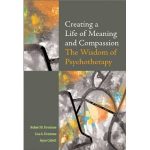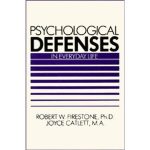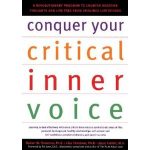Understanding Stress

Many of us experience stress on a daily basis. Stress has taken so routine a space in life today that we’ve grown accustomed to rubbing our foreheads, medicating our headaches, casually bringing it up in conversation and then, at the end of each weekend, anticipating another week filled with it. Today, many of our lifestyles have fallen into the go, go, go pattern of leaping from task to task, interrupted only by brief moments of unwinding the after-dinner glass of wine, the annual vacation or the weekend zone-out session of TV. In spite of our sea of complaints, complications and excuses, why are we so accepting of stress? How often do we actually take the time to take a closer look at why we get stressed, to challenge this feeling and make an effort to overcome it?
A lot of people feel stressed because they have more things they need or want to do then they can get done. These unrealistic expectations can lead us to attack ourselves with unrealistic self-critical thoughts.
You can’t get anything right!
You’ll never be able to get this done.
You’re a failure!
These thoughts impair us in our actions, leading to increased stress and demoralization. It is essential that we stand up to these voices in our heads and do not allow them any power over our mood or our behavior. We can help this process by understanding the source of these thoughts.
When we experience this strain, we also run the risk of feeling victimized by it. Too often we take a powerless position and blame others for the pressure we’ve put ourselves under. At these times, we may find ourselves becoming critical, self-pitying or even outwardly abusive. Never punish other people when you find yourself overwhelmed by these feelings. Unnecessary disputes, arguments and rivalries will only add to your stress.
The combination of feeling victimized or self-hating often leads us to complain. This tendency is reinforced when we are surrounded by others who tend to complain about problems, rather than seek to understand and solve them. While it is invaluable to use a friend to relieve anxiety or gain perspective on your self-critical thoughts, it is different (and often destructive) when we use them to complain to and further indulge our self-pity. If we find ourselves chronically repeating destructive patterns, we are far less likely to take constructive action and seek a solution to our misery. We are certainly not dealing with what’s really causing us so much stress.
Don’t try to alleviate your stress by numbing yourself with alcohol and drugs. These actions just lead to dependencies that generate even more stress as well as physical health concerns. Rather than becoming weakened by our stress, it’s important that we take power. Granted not everything in life is within our control, but our emotions can be dealt with in a strong, productive manner. The more we stay in the moment, the less we are likely to be overwhelmed by thoughts of the past or future. This may seem easier said than done, but rather than get demoralized, it’s possible to maintain a powerful, proactive stance.
It’s important that we do not make stress a lifestyle. When stressed, take a moment to slow down and get in touch with yourself. Forget about all that you have to do, and find a way to focus on you. For some, this may be meditation. For others, it may be listening to a certain song. Once you are “back in your own skin” you will have a more accurate perspective about the overall balance of your life. You will be able to evaluate your responsibilities in relation to how you want to live. Have you taken on so much that you always feel something is left undone? Are there things on your high priority list that are really not that important and can be done later or even delegated to someone else? This is a valuable exercise to repeat at those times you find stress getting the better of you.
It may be a cliché, but it’s also a reality that worry won’t make it better. What will help is thinking about the source of your tendency to become stressed. Think of ways your stress is linked with your past. We tend to take it for granted that the tensions we grew up are just a natural part of life. As adults, it never crosses our minds that life can be free of them. Think about whether, as a child, you felt as if you were in an intense or agitated environment? Don’t rationalize away your past experiences with thoughts like “My parents did the best they could” or “My childhood wasn’t that bad.” What might not seem traumatic to you as an adult may have felt truly scary when you were little. Remember, as a child, everything from an adult’s expression to a crowded supermarket can feel overwhelming and intimidating. If stress is a pattern in your life, try to imagine how this could be a replica of your childhood? These may be difficult connections to make, but the more we identify stress as a link with our past, the better able we are to overcome it in our present.
If you suffer from anxiety, visit our Anxiety page or the following helpful resources:
National Institute of Mental Health -Anxiety
WebMD – Anxiety
Anxiety Disorders Association of America
Mayo Clinic – Anxiety
Insight Journal
GET HELP:
IF YOU OR SOMEONE YOU KNOW IS IN CRISIS OR IN NEED OF IMMEDIATE HELP, CALL 1-800-273-TALK (8255).
International readers can click here for a list of helplines and crisis centers around the world.
This is a free hotline available 24 hours a day to anyone in emotional distress or suicidal crisis.
Related Books:
 Creating a Life of Meaning and Compassion Creating a Life of Meaning and Compassion |
 |
Tags: anxiety, anxious, pressure, stress, stressed, worried, worry











Leave a Reply
You must be logged in to post a comment.